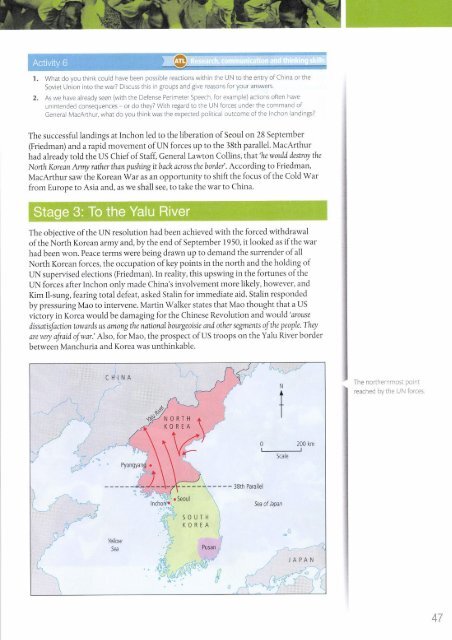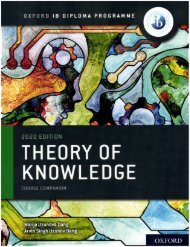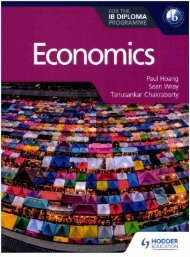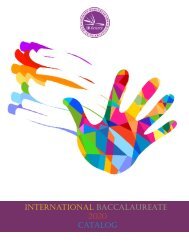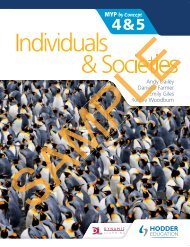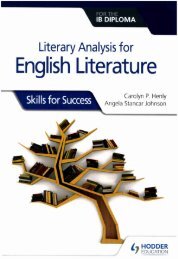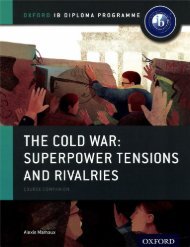SHELF 9780435183127 HISTORY PAPER 3 THE COLD WAR AND THE AMERICAS (1945-1981) STUDENT 60p
SHELF 9780435183127 HISTORY PAPER 3 THE COLD WAR AND THE AMERICAS (1945-1981) STUDENT 60p
SHELF 9780435183127 HISTORY PAPER 3 THE COLD WAR AND THE AMERICAS (1945-1981) STUDENT 60p
Create successful ePaper yourself
Turn your PDF publications into a flip-book with our unique Google optimized e-Paper software.
1. What do you th nk cou d have been poss ble react ons with n t rc UN to the entry o[ Ch na or th-'<br />
Sov et Union rnto the war? Discuss lh s in groups anc g ve reasons for your answers<br />
2. As we have already seen (with the Defense Peri:-neter Speech lor examp e) actions olterr lr;lv-'<br />
unintendecl consequences - or do they? Wrth regard to the UN fotces under the conrrn.ind of<br />
General l\,lacArthur', what do you think was the expecled polrtica outcorre of the t-chon and ngs?<br />
The successful landings at Inchon led to the liberation of Seoul on 28 September<br />
(Friedman) and a rapid movement of UN forces uP to the 3Sth parallel. MacArthur<br />
had already told the US Chief of Staff, General Lawton Collins, that'he would destroy the<br />
Nofih Korean Army rather thanpushing itback across theborder" According to Friedman,<br />
MacArthur saw the Korean War as an opportunity to shift the focus of the Cold War<br />
from Europe to Asia and, as we shall see, to take the war to China'<br />
<br />
<br />
<br />
The objective of the UN resolution had been achieved with the forced withdrawal<br />
of the North Korean army and, by the end of September 1950, it looked as if the war<br />
had been won. Peace terms were being drawn up to demand the surrender of all<br />
North Korean forces, the occupation of key points in the north and the holding of<br />
UN supervised elections (Friedman). In reality, this upswing in the fortunes of the<br />
UN forces after Inchon only made China's involvement more likely, however, and<br />
Kim Il-sung, fearing total defeat, asked Stahn for immediate aid. Stalin responded<br />
by pressuring Mao to intervene. Martin Walker states that Mao thought that a US<br />
victory in Korea would be damaging for the Chinese Revolution and would'arouse<br />
dissatisfaction towards us among the national bourgeoisie and other segments of the people. Thq<br />
aretery afraid of war.'Also, for Mao, the prospect of US troops on the Yalu River border<br />
between Manchuria and Korea was unthinkable.<br />
<br />
<br />
<br />
<br />
<br />
<br />
<br />
<br />
<br />
<br />
The norinerf rn!!, l,.o ii<br />
r"-.acher,i by thr UN io'ces.<br />
a'<br />
Pyongya<br />
<br />
<br />
<br />
<br />
lncho<br />
o Seoul<br />
Sea of Japan


